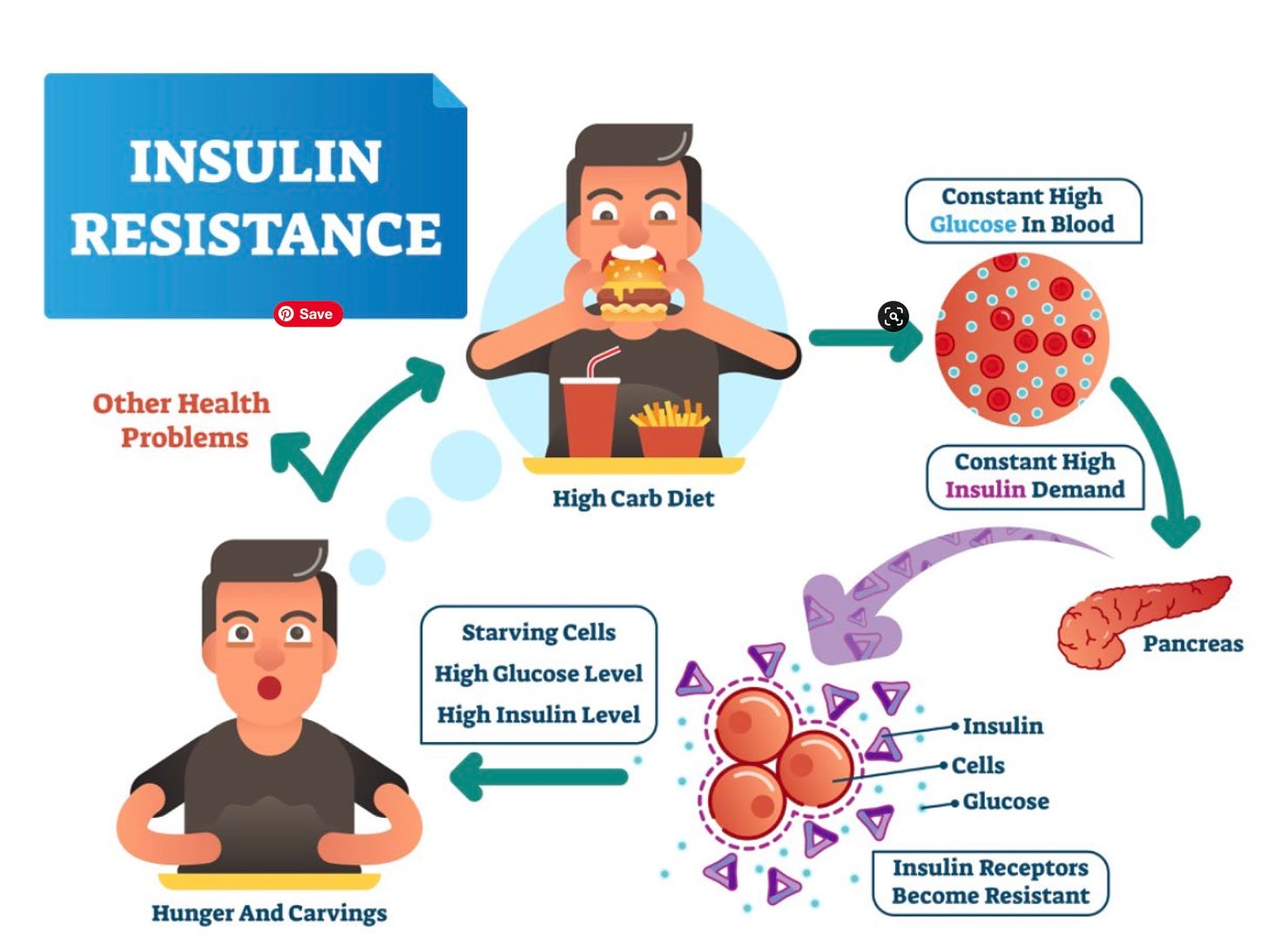Carb Cravings Toolbox and Reactive Hypoglycemia
RH is mild reaction to eating that gives the intense desire to scarf carbs about 2 hours after a meal.
Happy Tuesday, fasters and feasters! Today, our fasting motivation comes from learning about how reactive hypoglycemia can mess with our hunger signals and how fasting works to correct this. It’s difficult to push through hunger signals when you don’t understand what’s happening in your body. Learning about how reactive hypoglycemia makes you feel may motivate you to lower carbs, knowing that eventually, such cravings will fade.
Help! I crave carbs. Signs You May Have Reactive Hypoglycemia
If you’ve tried reducing carbs and found it extremely difficult, this is for you.
Summary
Insulin is a hormone that lowers blood sugar
Many people release slightly too much insulin in response to food, which causes a response called reactive hypoglycemia, or RH, where the glucose drops too low
You may be releasing a little too much insulin if you have intense carb cravings two to three hours after a meal
Reactive hypoglycemia (RH) is completely reversible, but it takes time
A Brief Review of Insulin
Those who’ve been reading for a while will remember me frequently mentioning insulin as the master hormone. It gets this name because it has over 200 known functions in the body whereas most hormones have only two or three.
Because of insulin’s wide-reaching effects, it’s important that our bodies are properly responding to insulin signally and that we don’t have too much insulin circulating. Proper insulin levels have profound implications for diabetes, heart disease, cancer, and nearly every chronic disease. High insulin’s many effects on disease states are the premise for Dr. Bikman’s well-researched book Why We Get Sick.
Insulin Resistance happens when our cells are less responsive to the insulin signal to open up and accept glucose:
How Insulin Protects You from Dying from High Glucose
Keep reading with a 7-day free trial
Subscribe to Fast Well | Feast Well to keep reading this post and get 7 days of free access to the full post archives.




